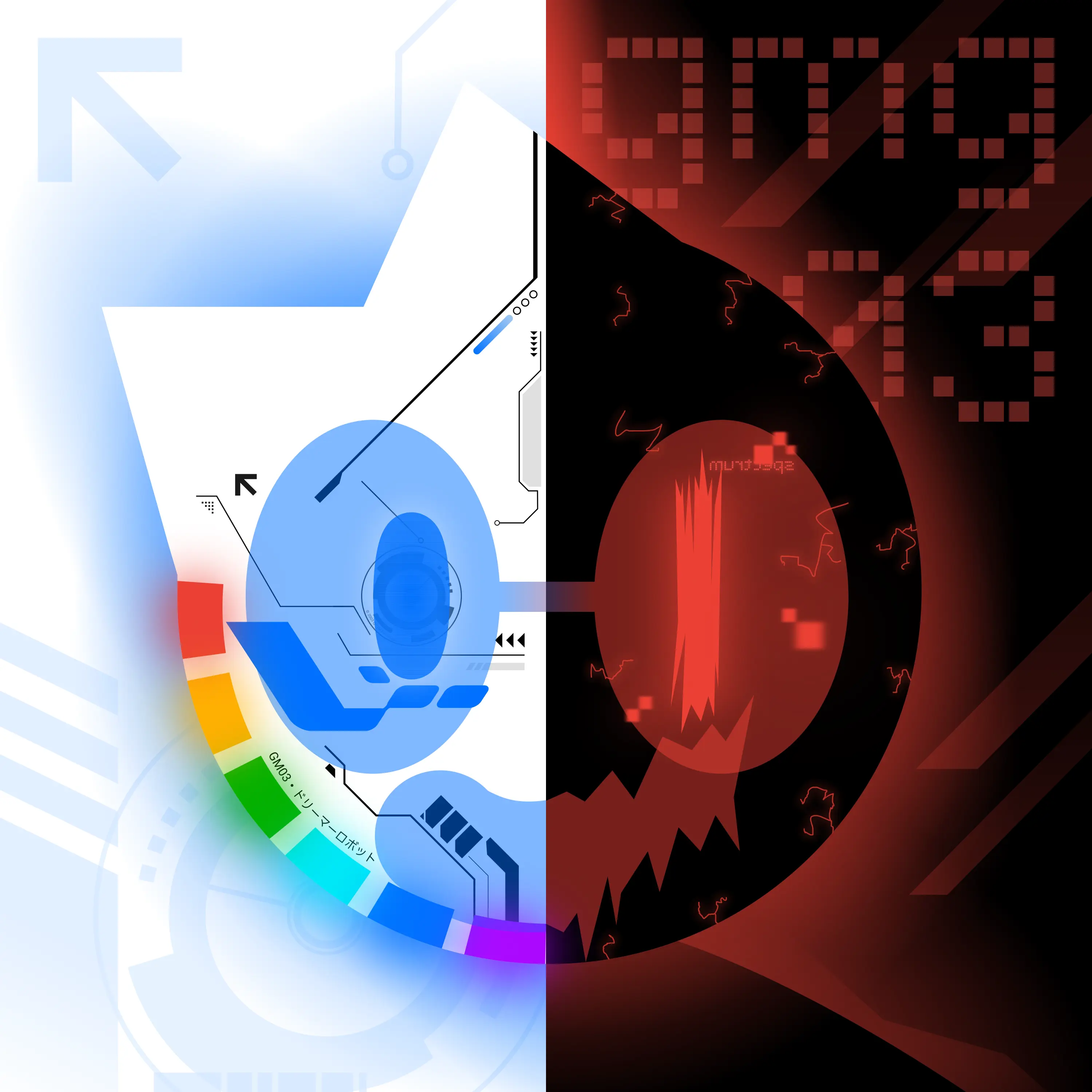I zoomed in to read what they’re saying on the bottom right and was disappointed.
What do you think they should be saying?
She: Btrfs snaps like a pro!
Him: Like a file system should!
it doesn’t snap like a pro, though. I’m not a windows fan, but the NTFS snapshotting tech, the Volume Shadowcopy service on windows, notifies databases and whatever that is subscribed to it so that they can finish writing whatever is in the pipeline, and receive feedback from writers when they are done to know when to proceed.
as I know, linux does not have such a mechanism. without it restoring a snapshot made on a running system is exactly like booting from a crash.
sure better than nothing. but it’s not like a pro.
Mimimimi
I can’t be the only one that reads BTFRS as butt farts
If you were, not anymore. That’s what I’m calling it from now on.
Am I old if I read BTRFS as butterface?
I think your subconscious switched up the letters to induce the funny
Or the dyslexia
I can’t help but try to phonetically call it “BUTTERFURSS”. O.o
Maybe not butt farts, but butter for sure.
And here I thought it was “butt first”.
The CoW nature of Btrfs means it’s often slower than ext4 for common tasks, right? It also means more writes to your SSDs.
I’ve stuck to ext4 so far, as someone who doesn’t really have a need for snapshotting.
Edit: I’m not an expert on file systems in the least, so do chime in if these assumptions are incorrect.
Meh, ssds are basically cow by nature anyway, you have to erase large blocks, you can’t just rewrite into them.
But if the file system needs extra writes anyway for CoW, and the SSD needs its own CoW, then wouldn’t that end up being exponential writes? Or is there some mechanism which mitigates that?
The fs does cow then releases the old block if appropriate.
The ssd has a tracking map for all blocks, it’s cow relies on a block being overwritten to free the old block.
Basically it works out the same either way.
Thanks
It’s interesting, however, if you mkfs.ext4 without -E ssd, or through some weirdness in your driver chain the filsystem doesn’t know it can discard, then everything everywhere sucks for everyone, a cow fs is worse because no blocks are ever overwritten till the end, and the block map becomes a disaster while performance goes down the drain.
Nowadays this rarely happens outside of very broken USB mass storage chips.
This is why we used to have the fstrim command.
IDK what they mean by better ssd I/O performance, btrfs was the worst FS I tested for some heavy SSD workloads (like writing thousands of little pngs in short time, file searches, merging huge weights with some paging)…
The features are fantastic, especially for HDDs, but it’s an inherently high overhead FS.
ext4 was also bad. F2FS and XFS are great, and I’ve stuck with F2FS for now.
idk man I just wanted to make a funny meme I’ve never run benchmarks myself and I just use btrfs for the features
Oh cool! Share the funny meme when it’s done.
(just pulling your leg. ^^)
Brutal lol
Yeah I meant no harm :P
Yeah none taken ;)
Really? I’ve found that btrfs is generally more performant than XFS
Yeah, it’s like night and day. btrfs and ext4 clog up and stall on the PNG workload, it’s why I switched in the first place.
This is on a PCIe ssd though. On an HDD or maybe a big SATA drive, features probably win out over the overhead.
Hot format. Invest invest INVEST
Still no built-in encryption support :(
What are the benefits of built-in encryption versus LUKS ?
LUKS encrypts the whole drive, native FS encryption can encrypt it partially (e.g. just the home partition). Additionally, decrypting without a keyboard is a pain or impossible (e.g. touch screen only devices).
PostmarkedOS was able to encrypt disk while offering on screen touch keyboard to unlock it on my pinePhone “pro”.
It does this by encrypting the OS separately from apps and user data. The OS is auto unlocked (usually using a hardware TPM chip).
Opensuse has full disk encryption. https://news.opensuse.org/2025/02/20/setup-fde-on-opensuse/
I’m the furthest thing from an expert in linux encryption, but can you not use KDE’s “Vaults” feature to create encrypted folders/drives? I think it uses “CryFS” as the backend (according to KDE. Don’t really know enough about it).
I’ve used them on my btrfs drive and seemed to work fine.
The boot order of the component which handle encryption has an effect on which other system components which reliably can be scripted to automate stuff with that data.
Tldr if it’s just for your documents, sure. If you’ve got sensitive program data / config there, it makes it harder to autostart them because now you have to wait.
If the home/root partition is a physical or logical volume you most certainly can leave that decrypted while encrypting other volumes. The system could not boot if that were the case as the efi partition cannot be encrypted.
your data will have the same fate as that baby
Made smaller for easy delivery?
It was gonna be twins but they deduplicated, so conveniently the one simply holds a reference to the existence of the other one.
🤯
What’s the problem with btrfs really?
It is nice but it also feels like it is perpetually unfinished. Is there some major flaw in the design?
Mostly just the RAID5 and 6 instability, it’s fantastic otherwise. But I’m kinda excited to try out bcachefs pretty soon, as well.
Me too. (And when the author gets a chill pill)
So one should use ext4 for RAID 5&6?
Honestly, if it’s important enough to RAID, it’s important enough to do right and run full fat ZFS.
You could also go the mdadm route with individual disks but ZFS pools are so battle-tested that whatever unholy edgecase you manage to create will almost certainly be something someone has encountered before, and it’s probably well documented somewhere how to recover from
Sweet, thanks for the info
I would use ZFS
I’m not an expert but I’d say mdadm with btrfs on top
Isn’t bcachefs in danger of being removed from the kernel?
Just gotta hope Kent gets his pull requests there in time lol
The Linux kernel uses mailing lists so technically it is called a patch.
I think the biggest issue was that Kent had/has a attitude problem. It feels weird to pick a fight with Torvalds since he is kind of known for destroying devs but Kent did it anyway.
I’ve seen ZFS in production use on pools with hundreds of TBs, clustered together into clusters of many PBs. The people running that don’t even think about BTRFS, and certainly won’t actively consider it for anything.
- BTRFS once had data corruption bugs. ZFS also had that, but only in very specific edge cases. That case was taken very seriously, but basically, ZFS has a reputation for not fucking up your bits even close to BTRFS
- ZFS was built and tested for use on large pools from the beginning, by Sun engineers from back when Sun was fucking amazing and not a pile of Oracle managed garbage. BTRFS still doesn’t have stable RAID5/6.
- ZFS send/recv is amazing for remote replication of large filesystems.
- DRAID is kind o the only sane thing to do with todays disk sizes, speeds and pool sizes.
But those are ancillary reasons. I’ll quote the big reason from the archwiki:
The RAID 5 and RAID 6 modes of Btrfs are fatally flawed, and should not be used for "anything but testing with throw-away data”.
For economic reasons, you need erasure coding for bigger pools, either classic RAID5/6 or DRAID. BTRFS will either melt your data in RAID5/6 or not support DRAID at all.
The main one is how it handles corruption. It has actively been designed to do the exact opposite of what a sane filesystem should do and maximises downtime.
It shouldn’t be that hard to patch it so that it works around failures. I’m not sure why that doesn’t seem to be a config setting.
I wish we could just get one good open, unified filesystem that all OS’s support. It sucks that if I want a usb drive to function on both Android and Linux, I have to format it to FAT. That pos fs can’t even store files over 4 gigs.
I normally prefer copyleft licenses, but this is one case something more permissive seems appropriate.
Honest question: I thought this limitation was the purpose of exFAT? 🤔
I don’t use it much myself though so I’m not sure.
exFAT seems very fragile and likes to corrupt often, MacOS especially likes to break it
Maybe? All I know is the other day I used my Debian pc (gnome) to format a usb drive as fat, thinking that’d be the most compatible and hassle free fs for storing and transferring files. Then I got an error that I couldn’t store Champions of Norrath on it because it couldn’t store files over 4 gigs. So for now I just am using ext4.
practically begging for someone to post the competing standards xkcd
Personally, I enjoy having multiple options and being able to choose what meets my needs best.
FAT(ty)
Notice the hard drive is a Southern Numeric branded Xavier Blue.
It’s a random 3d model I found on the internet haha. The “Southern Numeric” got a chuckle out of me as well XD
Wtf lol
Friends don’t let friends use filesystem level deduplication.
Why?
It’s just too slow and memory consuming. Leave it for backup solutions like Borg.
What BTRFS stand for? (Wrong answers only)
Bro The RAID Fuckin Sucks
Wow an acronym nested in another acronym.
Breast, Thighs, and Ribs For Supper
Buttered Toast and Recursive Folder Shenanigans
Broken Terrible wRetched Fucking Shit
Better FS
Unfortunately, no. FOSS devs are notoriously known for picking bad names for their projects and BTRFS is no exception. The official name is Butter FS, likely because it’s supposed to make your experience smooth, yet anyone who tried to use its RAID5/6 implementations can tell you that it’s furthest from the truth.
its very truthful though. butter melts easily, like your data in RAID5/6 mode
BlueTooth Rams Family Sister
How about lvmvdo
Oh thanks for this.
Who needs RAID when you have mergerfs
mergerfs in the kernel would be cool for better performance.
for those that don’t know, it’s a FUSE based filesystem, which is also cool, but can be slow at times.
Weirdly enough because of the way mergerfs does writes across multiple drives, the main issue that FUSE filesystems face performance wise (namely writing a bunch of small files and their metadata) actually gets pretty well mitigated.














